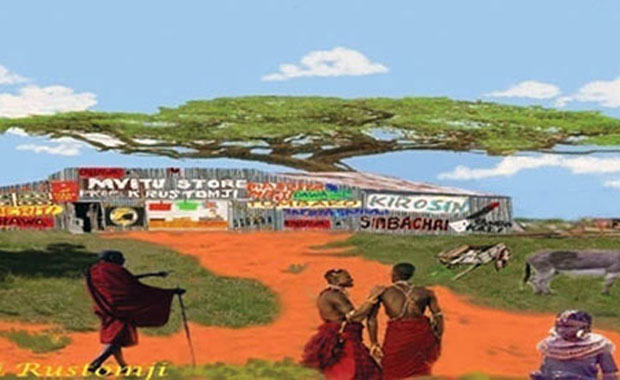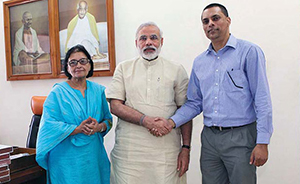The Dukawalla That Built Eastern Africa
The pioneering Indian Dukawalla or shopkeeper introduced the use of money to buy goods in Eastern Africa. Thus he launched the monetary economy in this part of the world. The Duka, derived from the Hindustani word Dukan, was set up in the remote locations after the British built the Uganda Railway at the end of the 19the century.
Housed behind the Duka, the hardy Dukawalla faced wild animals at night, hot sun during the day and isolation from his relatives and friends but he persisted and survived. Over time, he built a stone structure and then enlarged the building as his business flourished. More traders came and the sole Duka multiplied into many more and their location became a mini-township with administrative services moving in. All over Eastern Africa, these Dukas can still be seen in isolated locations and observe them as foundations of every town and city as the bazaar created by these Dukas. The Dukawalas have, in no small measure, played an important role, in the economic growth of Kenya, Uganda and Tanzania: and also Zambia and Malawi.
The story of Dukawalla is the heroic story of hard work, persistence and survival against massive odds. Kersi Rustomji, born in Mwanza, Tanzania, grew up with these Dukas and his keen observation and attention to detail in his colourful "Ode to Indian Dukawalla" and the illustration are historic documents for the Indian diaspora. These are unsung intrepid pioneering Indian traders , very often with their families, braved the unknown hazards of the Dark Continent, carried on regardless of disease, lack of comforts, privations, ill health, and even death, which they knew was their constant and real possibility.
"Hitherto the dukawala remain unrecognised nor given a deservedly appropriate place in the annals of these nations. Without record of these traders and other Indians who also played a very prominent and important part in the economic and the political growth of these nations, the histories of these East African countries would be incomplete," says Rustomji.
Indian traders have been active on the East African coast since Biblical times as they sailed forth and back in with the annual monsoon winds in creaky ships known as dhows. After the Indian labourers built the Ugandas Railway, some stayed back as craftsmen and opened their workshops near railway stations. Meanwhile, the traders moved inland and set up small dukas.











Comments.